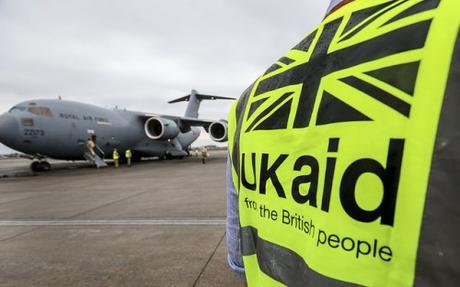
Photo Credit: DFID (via Flickr)
Although the international development community aspires to noble ends, the firms and organizations therein are not free from the same ethical lapses that can befall corporations with more naked profit motives. Adam Smith International (ASI), the largest international development contractor for the United Kingdom’s Department for International Development (DfID), can attest to that point. In February 2017, ASI suffered a major blow when DfID froze all future contracts with ASI after uncovering unethical behavior on the part of ASI. These firm-specific compliance issues open up abroader conversation about the roles of ethics, compliance, and the public in international development.
ASI earned their DfID sanction by hiring an ex-DfID employee who then used their access to proprietary DfID documents to help ASI gain inside information into how to win DfID contracts. ASI also sought to influence the results of parliamentary hearings by engineering the content in letters of support from its beneficiaries. In both of these cases, ASI sought to cover up their wrongdoing with more deception. Taken together, these cover-ups revealed a toxic culture that had been given the time and space to fester.
To their credit, ASI has taken these compliance problems seriously by initiating a set of major changes. ASI started their culture shift at the top, an approach described in a previous CC Trends post. Four founding executives (three now and one after a transition period) are stepping down without financial packages. Despite this and other initial steps in the right direction, the UK development community is still skeptical of whether ASI can engineer such a large internal culture shift. Only time and transparency will tell.
Moving beyond the individual case of ASI, the broader UK development community has faced growing public scrutiny over the past few years. This scrutiny has yielded major shakeups: ASI’s overhaul, a restructuring of DfID’s funding priorities, the end of DfID’s streams of unrestricted core funding for non-profits, and a general squeezing out of small and medium-sized UK development firms and organizations. Some of these changes bring greater transparency to the community, while others may yield less unambiguously positive outcomes. For example, higher compliance standards demanded by DfID have imposed greater internal monitoring costs on small and medium-sized development practitioners. But beyond the normative discussion of these shifts, is the question of why there is greater scrutiny now than in the past? Why is the public taking a more active role in defining ethics in international development work? And what does this mean for compliance and ethics?
The surprising force driving this change is a set of UK tabloids, including the Daily Mail. Over the past few years, the Daily Mail has published stories regarding the ethics of international development practitioners and of development assistance in general. These stories range from investigations into malpractice (as was the case for ASI) to allegations that tax dollars are funding terrorists. Cumulatively, these stories have resulted in the erosion of public opinion of development assistance and a siege mentality on the part of development practitioners.
ASI’s overhaul and the changing environment for development assistance in the UK offer lessons about forces acting on international development organizations.
The case of ASI shows that the international community faces pressure from all sides. While some criticize the development community for failing to do more to advance national interests, others argue that development assistance is already too closely linked with national interest. Projects that don’t meet evaluation goals are seen as poorly managed, while projects that do meet evaluation goals are criticized for undermining local institutions. Small and medium-sized development organizations face a more treacherous path to securing funding as donors cut unrestricted funding pools, while large firms come under scrutiny for putting too much emphasis on winning contracts. Increasingly the public is demanding a level of public transparency from international development organizations that is not demanded of most private firms.
To survive, international development organizations must strike a tenuous balance. They have to show how they advance national interests without seeming to have a real agenda. They must deliver successful projects without being so successful as to raise questions about the effect on local actors. They need to compete for funding without appearing greedy. They must also expand resources to ensure high levels of public transparency.
But above all else, as the ASI case shows, organizations must foster a culture of compliance to keep their ethical lapses from tarnishing the image of the international development community as a whole.
Peter Glover is a Program Assistant for the Program Coordination Unit at CIPE.

